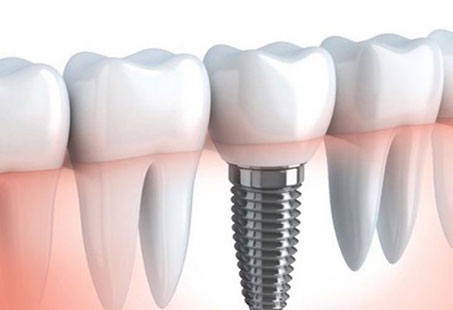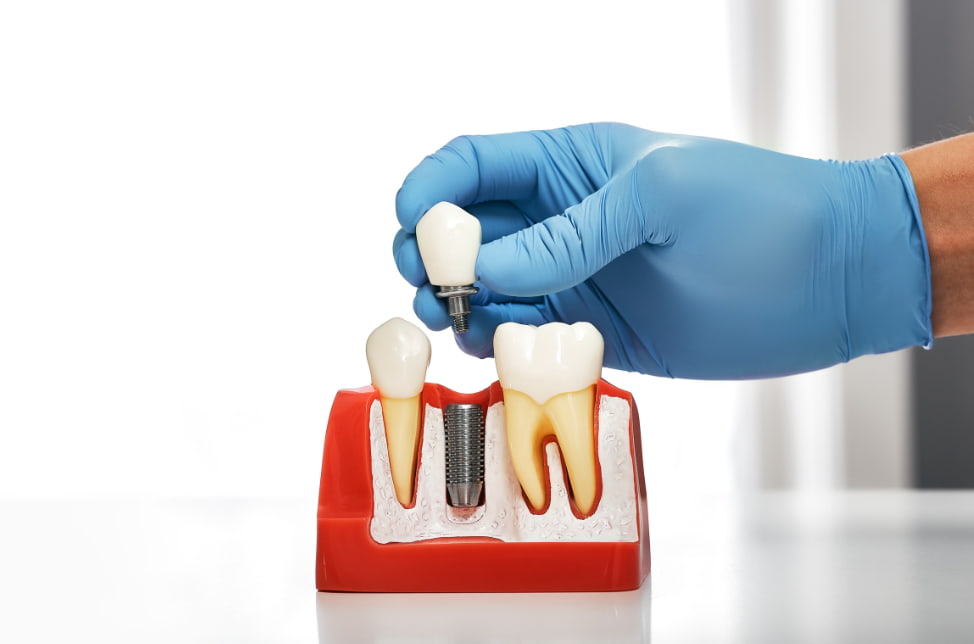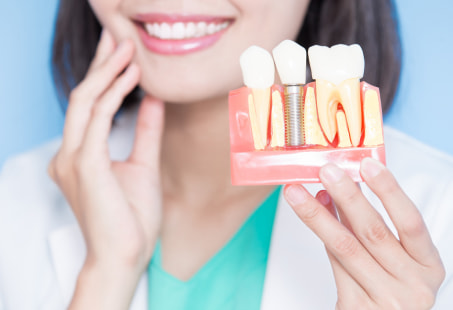While the long-term survival rate of dental implants has been reported somewhere between 93.3-98%, as per a 2021 research published in BMC Oral Health, it’s still possible for them to “fail.” Dental implant failure can be attributed to various factors, such as poor oral hygiene, health issues, and surgical errors, among others. Peri-implantitis is among these contributing factors.
One type of this condition is reversible and only limited to soft tissues; the other, however, can be far more damaging as it can affect the supporting bone, which can require surgery for restoration. In this guide, you’ll learn more about what peri-implantitis is, how it can be prevented and what you can do to treat it.
What Is Peri-Implantitis?
Peri-implantitis is an infection that results in inflammation of the soft tissue and the bone surrounding the dental implant. It should be noted that when discussing peri-implantitis, two categories of conditions are usually talked about:
- Peri-implant mucositis – It’s when only the gum tissue around the implant is inflamed without any bone involvement. This condition is reversible.
- Peri-implantitis – It’s when both the soft and hard tissues are involved, and the condition itself is irreversible, although there are still treatments for it.

Even if peri-implant mucositis may seem less serious than peri-implantitis, it’s important not to waste time in seeking treatment. That’s because, as per a 2013 study published in the Journal of Periodontology, peri-implant mucositis “is the precursor of peri-implantitis.”
What Does Peri-Implantitis Look Like?
Some of the signs and symptoms of lesions caused by peri-implantitis, as outlined by a 2012 study published in Dental Research Journal, are as follows:
- Formation of a “peri-implant pocket” (a pocket forms around the dental implant)
- Bone loss
- Bleeding and suppuration (the process of formation and discharge of pus) on probing
- Swelling
- Pain
You might also feel tenderness in the area around the implant, and brushing might also cause bleeding. If at any time after getting your implants, you feel something isn’t right with your teeth, make sure to get in touch with your dentist.
What Is The Main Cause Of Peri-Implantitis?
Bacterial infection is considered the main cause of peri-implantitis. The bacterium Staphylococcus aureus, in particular, is believed to play a major role in its development, having a high affinity for titanium – the material from which implants are typically made, according to a 2014 study published in the Head & Face Medicine. In any case, the bacterial infection can eventually result in the irritation and inflammation of the soft gum tissue, and it can also result in the loss of the bone.
Here, it’s also important to note that certain factors have been identified to increase the risk of peri-implantitis in patients. A Current Oral Health Reports’ 2020 research highlights those that have been “established” as follows:
- Periodontal (gum) disease
- Cigarette and smokeless tobacco
- Inadequate maintenance
- Obesity
- Hyperglycaemia
Among the local risk factors, the study also identified malpositioned implant, excess cement, and improper plaque control, among others. Therefore, these things might make you more susceptible to developing an infection such as this.
How To Treat Peri-Implantitis?
The treatment of peri-implantitis will depend on the underlying cause and how severe your problem has become, especially with regard to the deterioration of the supporting bone structure. Based on that, a non-surgical approach could be taken by your dentist, which could involve:
- Use of chlorhexidine (which is an antimicrobial)
- Antibiotics
- Mechanical debridement (removing unhealthy tissue)
- Ultrasonic/laser device treatment
If the condition has progressed and the bone loss is enough to warrant surgery, your dentist will probably recommend a bone graft to rebuild the damaged bone. But, again, the treatment will also include addressing the underlying cause of the problem.
So, for instance, if smoking or poor oral hygiene is an issue, you will likely be advised to make lifestyle changes and take better care of your teeth through brushing, interdental brushes, flossing, etc.
How To Prevent Peri-Implantitis?
To prevent peri-implantitis, you have to keep some of its risk factors in much, such as poor hygiene, smoking, a history of gum disease, etc. For one, maintaining good oral hygiene is imperative.

Even though dental implants are artificial tooth root replacements with artificial restorations like dental crowns on them, you need to keep your teeth clean. The American Academy of Periodontology notes that implants need “regular tooth brushing and flossing” along with check-ups. If you also have a history of gum disease, you need to be extra careful.
Since smoking can also affect your implant, you should consider quitting it altogether as well. Other than that, as problems in the placement of the implant can also increase the risk of this issue, it’s important that you find a dentist who’s experienced and qualified.
Conclusion
Peri-implantitis is not something you should take lightly. The condition can cause permanent damage to your bone and the repair-work itself may also be quite expensive. When you decide to get an implant, make sure to discuss this complication with your dentist beforehand so you are aware of the ways in which it can be prevented.
Before that, however, if you have a oral health problem, make sure to do your research in finding a qualified and board-certified doctor who can address your needs most effectively.
Reviewed and approved by Dr Izbel Aksit
FAQ
What happens if peri-implantitis is left untreated?
You shouldn’t expect peri-implantitis to go away on its own without any treatment. Keep in mind that peri-implant mucositis, which is reversible, is considered a precursor to irreversible peri-implantitis, and it can cause permanent damage.
How common is peri-implantitis?
A 2022 study published in the International Journal of Environmental Research and Public Health noted that different researches have reported a 28% to 51% prevalence of peri-implantitis. It is a common problem.
Can peri-implantitis be reversed?
Peri-implantitis is irreversible. If you have developed it, it’s important to get in touch with a dentist as soon as possible for a medical intervention.
